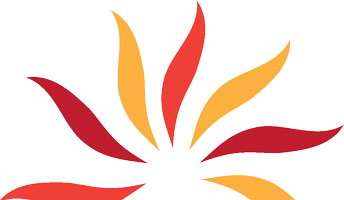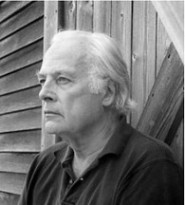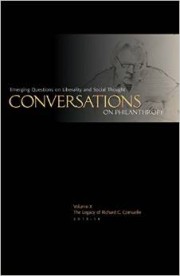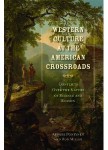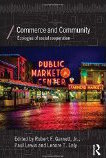2020 – Artisanship in Culture and Enterprise
The 2020 Conference on Voluntary Governance
Artisanship in Culture and Enterprise
November 5-7, 2020
The conference, organized in collaboration with the Center for the Study of Economic Liberty, was originally scheduled to take place on the campus of Arizona State University. Due to the Covid-19 pandemic, the conference was held online.
Agenda
Thursday, November 5
8:00 a.m. — Keynote: Crisis as a Source of Social Capital
- Virgil Storr, George Mason University
- Crisis as a Source of Social Capital
9:00 a.m. — Break
9:30 a.m. — Session 1: Practical Applications
- Tara Bartlett, Arizona State University
- The artisanship of participatory democracy: Cultivating and sustaining self-governing capabilities among youth through School Participatory Budgeting
- Bryan Bruns, Independent Researcher
- Polycentric Solutions for Groundwater Governance in Sub-Saharan Africa: Encouraging Institutional Artisanship in an Extended Ladder of Participation
- Robert Wright, American Institute for Economic Research
- Reducing Recidivism
11:00 a.m. — Break (Lunch)
Noon — Session 2: Cultural Governance
- Sasha Klyachkina, University of Wisconsin–Madison
- Post-Conflict Governance: Divergent Legacies of Civil War in Post-Soviet Chechnya
- Seth Frey, University of California, Davis
- Institutional development of online communities
- Anthony Gill, University of Washington
- The Comparative Endurance and Efficiency of Religion: A Public Choice Approach
1:30 p.m. — End
Friday, November 6
8:00 a.m. — Session 3: Democratic Citizenship
- Karol Soltan, University of Maryland, College Park
- A Strong Program for the New Civics
- Alexis Carré, École Normale Supérieure
- Raymond Aron and the Moral and Cultural Conditions of Liberal Democracy during War Time
9:00 a.m. — Break
9:30 a.m. — Session 4: Modeling Governance
- Richard Hammer, Independent Researcher
- Artisanship Established in a New Model of Life
- Seth Frey, University of California, Davis
- Emergent cultural differences in online communities’ norms of fairness
- Roger Koppl, Syracuse University, with Abigail Devereaux, Wichita State University
- Explaining Technology
11:00 a.m. — Break (Lunch)
Noon — Session 5: Governance in Social Movements and Groups
- Mikayla Novak, Australian National University
- Social Movements: An Ostromian Orientation
- Nathanael Snow, Ball State University
- The Political Economy of the Informal Social Group, and the Origins of Legitimacy
- Nathan Goodman, George Mason University
- Polycentric Defense in the Civil Rights Movement
1:30 p.m. — End
Saturday, November 7
8:00 a.m. — Session 6: Comparative Politics
- Peter Galbács, Budapest Business School
- Artisans, migration, and the market mechanism — the case of Hungary
- David Diaconu, National School of Political Science and Public Administration
9:00 a.m. — Break
9:30 a.m. — Session 7: Political Economy and Voluntary Governance
- Jennifer Murtazashvili, University of Pittsburg
- Pseudo-polycentric governance
- Malavika Nair, Troy University
- Robust Political Economy and Civil Society
10:30 a.m. — Break
11:00 a.m. — Session 8: Governing Corruption
- Richard Gunderman, Indiana University
- The Dark Side of Artisanship: The Black Tar Heroin Trade
- Edwar Escalante, Angelo State University
- Terrorism and Crime: The Self-defense Association in Peru
- Blaire Modic, University of Pittsburg
- Property rights and informality in the judiciary: a study of expropriation in Costa Rica
12:30 p.m. — End
Conference Organizing Committee
Ross Emmett, Arizona State University
Director, Center for the Study of Economic Liberty
Professor of Economic Thought, School of Civic and Economic Thought and Leadership
Paul Dragos Aligica, George Mason University
Senior Fellow, F. A. Hayek Program for Advanced Study in Philosophy, Politics, and Economics
Senior Research Fellow, Mercatus Center
Lenore Ealy, Charles Koch Institute
Senior Fellow of Communities, Charles Koch Institute
President, The Philanthropic Enterprise
Vlad Tarko, University of Arizona
Assistant Professor of Political Economy and Moral Science, College of Social and Behavioral Sciences
Call for Papers
Ideological and political polarization increasingly inhibit creative and consensus-building responses to social problems. Yet, as Vincent Ostrom observed, “human relationships are integrally bound together through artisanship and the artifactual character of human creations that are constitutive of cultures, societies, and civilizations as aggregate patterns of order.” The future of self-governance depends upon a citizenry who refuse to allow government “to be the sole agent and the only arbiter of [their] happiness… to spare them all the care of thinking and all the trouble of living” (Tocqueville). In a free society, robust citizenship requires more than just voting and policy advocacy, but also active engagement in crafting community together.
The 2020 Research Conference on Voluntary Governance will convene scholars interested in exploring how people in ordinary life across a society (and between societies) actually come to coordinate their activities to enable the achievement of individual and collective goals. We seek papers and presentations that:
- Explicate and develop the concept of artisanship as a framework for both creative problem-solving and transcending widening ideological gaps.
- Explicate and develop, through theoretical analysis and/or case studies, the meaning of a “science of culture” and the interplay between common knowledge, shared communities of understanding, patterns of accountability, and mutual trust in the constitution of viable social orders.
- Explore how the self-organizing and self-governing capabilities of citizens in democratic political orders originate and are cultivated and sustained.
- Explore the cultural foundations of creative civilizations.
- Present case studies of historical and contemporary social enterprises that successfully present creative and consensus-building responses to social problems, especially in the areas of education, criminal justice, and welfare-to-work.
